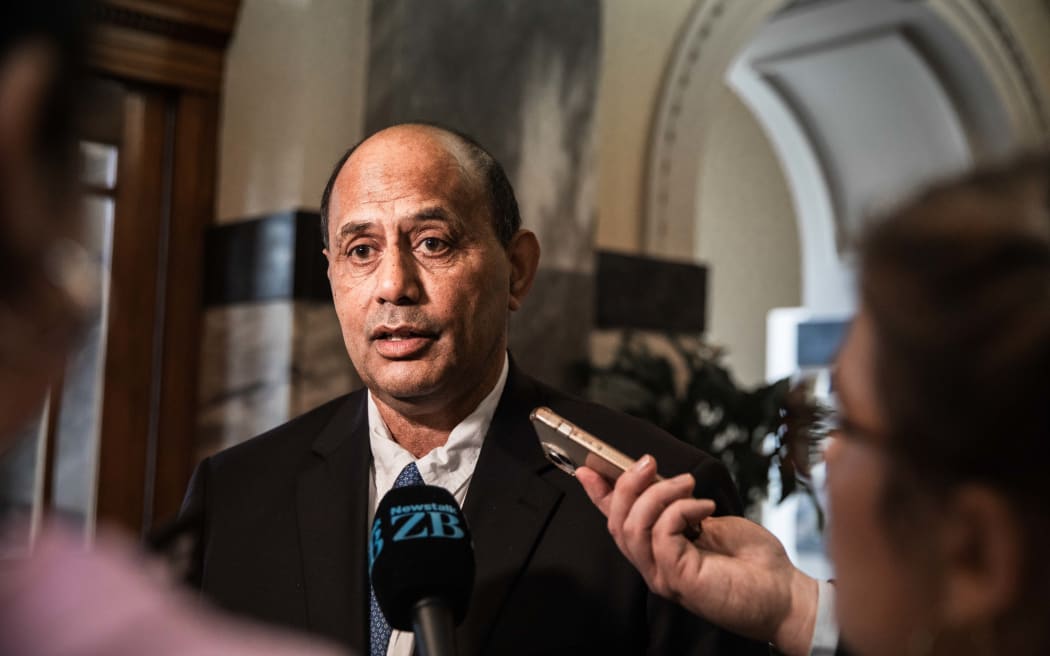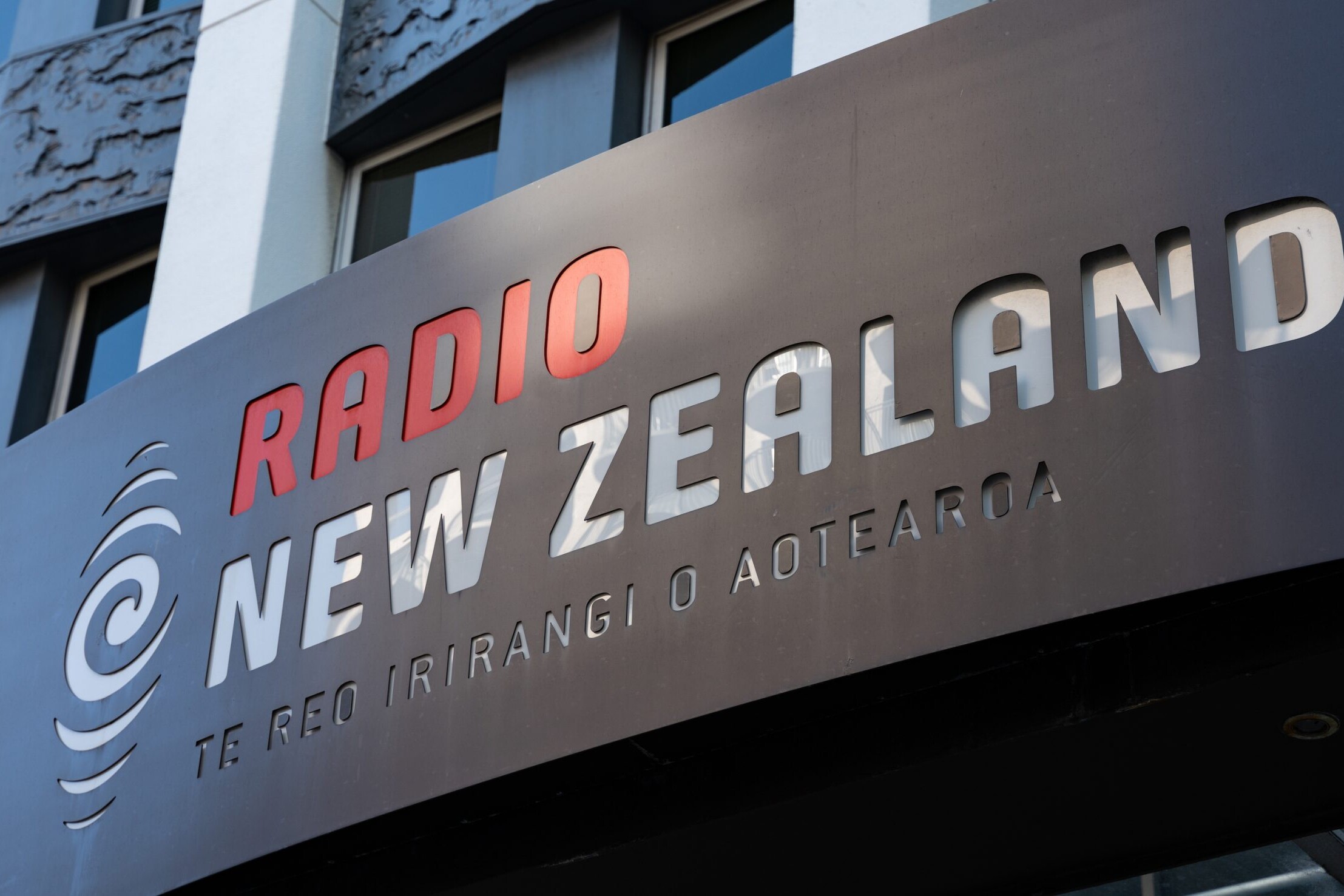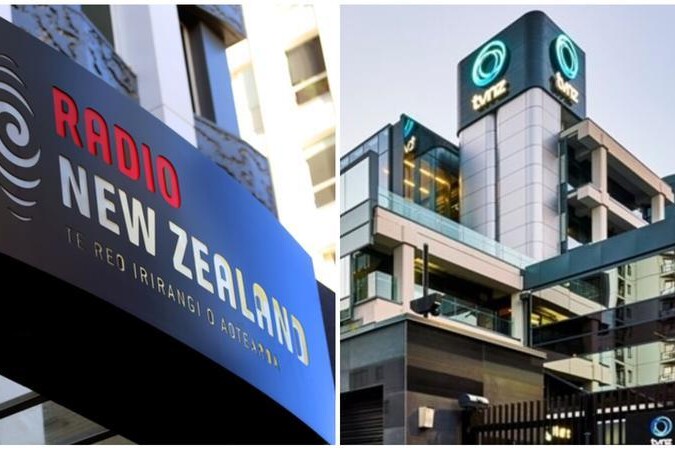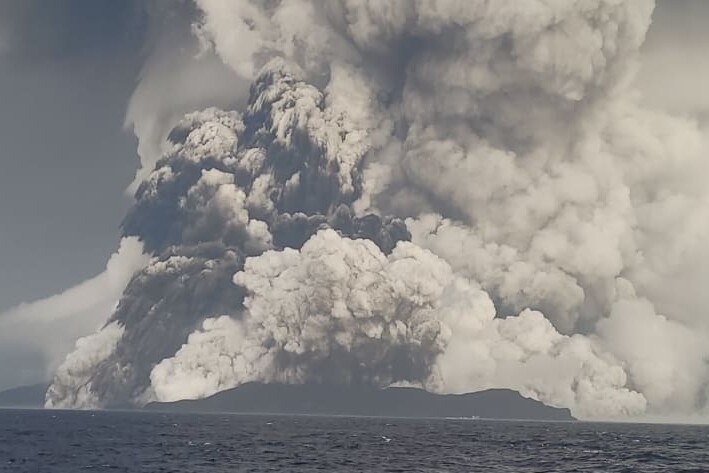New Zealand: What’s the government’s post-merger media plan?
26th April 2023
The government is beefing up RNZ’s budget after scrapping the new public media entity it planned over four years. But what’s the ‘broadcasting strategy for all New Zealanders’ the minister says he’s putting together? And what’s the plan for state-owned TVNZ?

This piece was originally published on RNZ and is republished with permission.
By Hayden Donnell and Colin Peacock of RNZ.
When Broadcasting Minister Willie Jackson was doorstopped by reporters in Parliament earlier this month, he said he would soon announce a “broadcasting strategy for all New Zealanders”.
The centrepiece of the previous one since 2019 dissolved in March when the prime minister scrapped the public media entity (Aotearoa New Zealand Public Media) to replace RNZ and TVNZ.
On 6 April, Jackson announced a $25 million boost of RNZ’s annual budget for the next four years, with a one-off boost of $10m for NZ on Air thrown in as well.
Effectively, this was a pre-Budget announcement on media funding – but not a strategy.
Read more: RNZ Welcomes Funding Announcement
In Parliament that day, Jackson made plain just how much still needs to be done late in Labour’s second term.
“A clear way to strengthen public media in Aotearoa is for TVNZ to play a more active broadcasting role. We’ve made a significant investment in terms of Māori broadcasting. The ANZPM Bill included a new charter designed for a modern fit-for-purpose national public media entity. We’ll use that good work to update and strengthen our RNZ charter. And my officials are looking to modernise our outdated Broadcasting Act legislation that the useless National Party put in place,” he told Parliament.
Some of those reforms could have been completed by now but were stalled by the ANZPM plan, which has now been dumped.
TVNZ Charter 2.0?
Jackson had earlier said TVNZ’s role would be reconsidered and new TVNZ board appointments would be made soon.
“We’re exploring ways TVNZ can play a more active ‘public broadcaster’ role and … maybe looking at a charter or strengthening and monitoring their reporting requirements,” Jackson told RNZ.
The TVNZ Charter was introduced by Labour in 2002 along with a modest level of funding for programming. Less than 10 years later, it was scrapped by a subsequent National-led government.
“We had a charter for the public media entity (ANZPM). We’re going to look back at and see if we can incorporate some of some of the kaupapa, some of those initiatives maybe for RNZ’s charter review. Then we’ll see if it is possible to look at a possible TVNZ charter,” Jackson told Mediawatch.
“These are things I want to roll out with TVNZ people shortly. Obviously, we’re looking also at the composition of the (TVNZ) board,” he said.
“My hope is that RNZ and TVNZ work closely together. Some people think that’s impossible. Well, that’s what we were going to do with the merger.
“Obviously there’s going to have to be a commercial strategy in terms of TVNZ, but it’s about getting the balance and reminding them … they are an essential part of New Zealand as a public media entity.
“It’s not about changing drastically what they’re doing, but maybe just looking at Māori, Pasifka, Asian, disabled and youth audiences and … their obligations as a public media entity. I’m looking forward to those talks over the next few weeks.
“We’ll be doing announcements over the next next couple of months. We’ve got a budget coming up … and I’m looking closely at working with Māori media at the moment. We’ll have more news on our new online news bill, which is incredibly important in terms of media companies being paid fairly for their content used online by companies like Google and Facebook.
“If I can pull those other parts together, we’ve got a sort of comprehensive and coordinated New Zealand broadcasting strategy.”
Listen toour podcast
Uncovering and exploring the biggest
issues facing public media
What can we expect from RNZ’s budget boost?
The RNZ funding boost was also billed as a saving by the government because ANZPM would have had a much bigger bill.
But in his announcement on 6 April and in Parliament, Jackson insisted “world class public media” would flow from the fresh funds.
Newsroom’s co-editor Mark Jennings was not so sure – taking into account the government’s previous comments.
“Until weeks ago, the future of Aotearoa New Zealand’s public media organisations was looking so grim the government was prepared to spend $370 million over four years to merge TVNZ and RNZ,” the former TV3 news chief noted.
“I think it’s enough for now,” Jackson told Mediawatch. “You know, we’re in the middle of a cost of living crisis … and it’s a lot more than people expected.
“But this is a tough world. We’ve got declining audiences, declining revenues. You’ve got competition everywhere in terms of the big digital players around the world. I see this as the first part of a broadcasting strategy.”
The RNZ funding announcement specified $12 million for “a new digital platform” for news.
“There were some crossed wires with my officials there. That shouldn’t have gone out that way. I expect [RNZ] will work on the existing service. It’s not for us to say what has to happen, as RNZ is independent from government, but I would imagine that they will upgrade things in terms of the website and the app,” he said.
In early 2020, RNZ proposed a new youth service offering music as well as news, lifestyle and wellbeing coverage for young people. That was canned because of the reaction to the proposed cutbacks to RNZ Concert the plan required.
“Again, it’s up to RNZ. But in our general korero we’ve talked about youth, we’ve talked about Māori, we’ve talked about Pasifika and underserved audiences. National radio has been hampered and restricted in terms of getting to those audiences,” Jackson said.
“I think it’s no secret that I have talked with them about young people, about Māori, about Pasifika. I’ve talked to them about the regions. [RNZ] told me they wanted to develop new audiences by delivering more news and content and improving existing digital infrastructure.”
Before he re-entered politics, Jackson was a broadcaster who was critical of RNZ’s level of Māori content and staffing.
“You’re more likely to hear a bird than a Māori on National radio,” he told Mediawatch back in 2016.
“I would like to see more Māori and Pacific programming and news. That’s something that has been acknowledged from [RNZ]. On top of that, we’ve got an extra $10m with NZ on Air tasked with finding those audiences of Māori and Pasifika. I have a Māori media strategy that I’ve overseen, and we got $40m for their strategy. So we can complement what we’re doing,” he said.
In past years, Jackson criticised RNZ for never having a Māori presenter for any of its flagship news programmes. Māni Dunlop recently left RNZ, citing her failure to secure the role of co-host on Morning Report.
Does Jackson believe RNZ is too reluctant to appoint Māori to front-rank on air roles?
“I don’t resile from or regret anything I did before, because I just want it to lead to meaningful change. I’ve seen the some of the changes. People are speaking Māori on RNZ which is terrific. I know, there’s been serious approaches to different Māori broadcasters and I also know that, you know, for some unknown reason some haven’t taken up the opportunity,” Jackson told Mediawatch.
“I would only ask that a major effort be made by RNZ. Some people could say: ‘You’re a bit hypocritical because now you’re the minister, you’ve got a different view’. We still don’t have Māori in those primetime positions, but I don’t think it’s because of a lack of effort from RNZ management in terms of trying to find the right people,” he said.
“It’s a long process, and I’m looking forward to more Māori voices coming through over the next couple of years.”
– RNZ
Related Posts
27th July 2022
“A vital tool”: Why RNZ turned to shortwave after the Tongan volcanic eruption
When the Hunga Tonga-Hunga Ha'apai…
4th July 2022
RNZ CEO: new public media entity is “a bold and unique step”
The CEO of Radio New Zealand explains…



